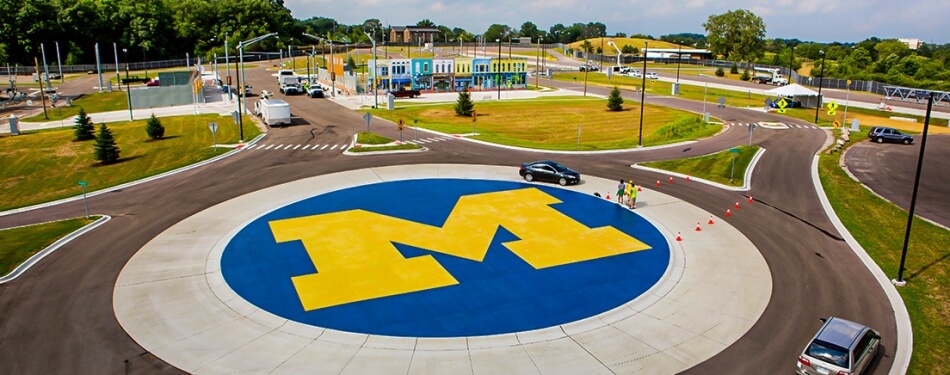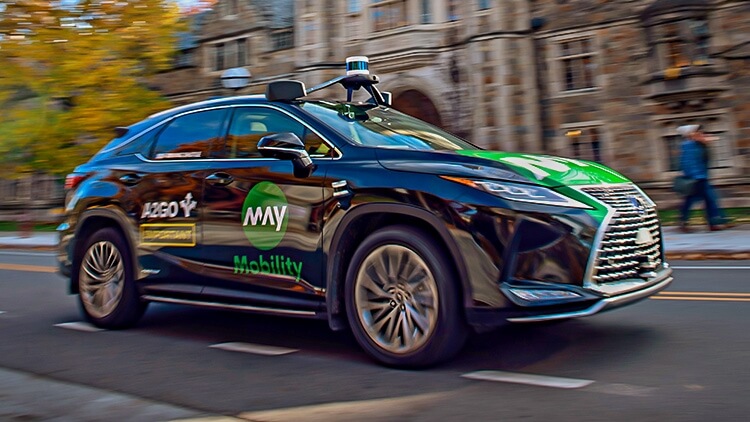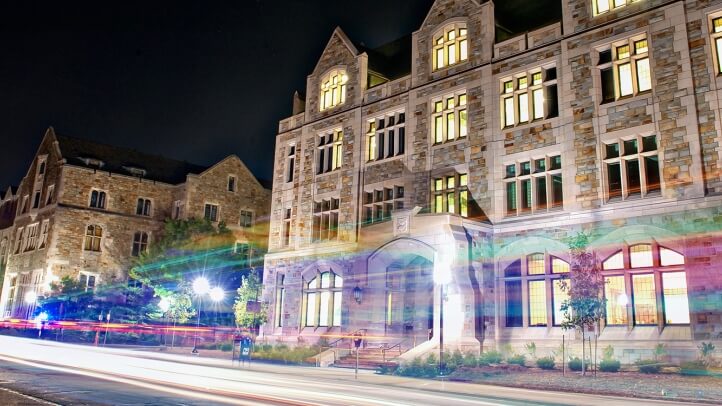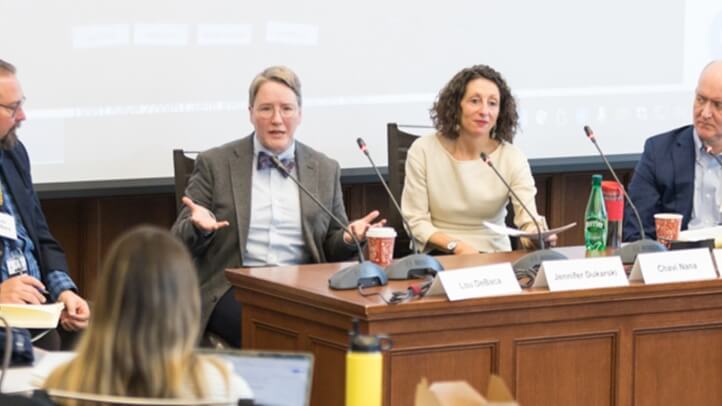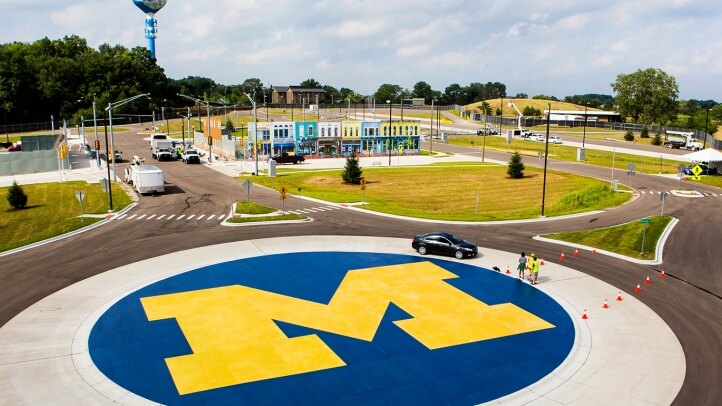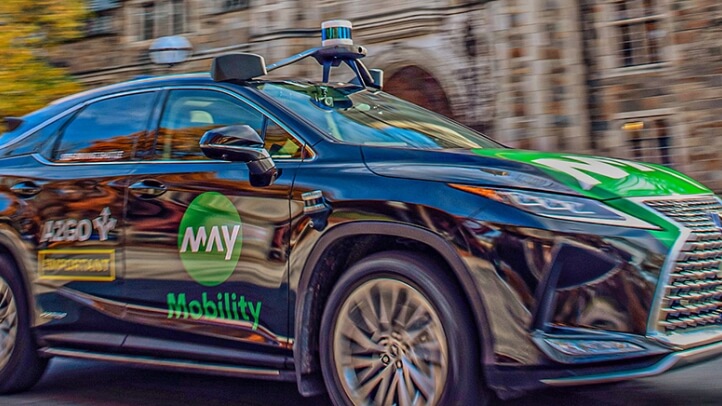Leveraging the University of Michigan’s world-class research facilities and Southeast Michigan’s global leadership in transportation technologies, the Law and Mobility Program fosters innovative research, scholarship, and discussion at the dynamic intersection of law and mobility.
About the Law and Mobility Program
The Law and Mobility Program is committed to a future where cutting-edge mobility technologies, from autonomous vehicles to commercial space travel, seamlessly coexist with a robust legal framework that drives innovation, ensures safety, and promotes equitable access to transportation solutions for all.
We contribute to this vision in an interdisciplinary manner, harnessing a deep bench of expertise from private industry, academia, and government to encourage dialogue and provide enriching learning opportunities for stakeholders and students. The Law and Mobility Program also offers students the opportunity to participate in its legal research projects that span a variety of areas of law, including technology law, environmental law, privacy law, and human rights law.
The Law and Mobility Program is a joint initiative of the University of Michigan Law School and Mcity, the University of Michigan’s mobility innovations research facility.
Research Projects
The Law and Mobility Program sets an annual research agenda that analyzes and addresses important issues related to emerging mobility technologies.
-
Comparative Analysis of Autonomous Vehicle Regulation
In this ongoing research endeavor, the Law and Mobility Program compares the laws and policies of European, Asian, and Latin American countries that regulate connected and autonomous vehicle operation and deployment.
-
Sustainability and Equity in Commercial Space Travel
The Law and Mobility Program is collaborating with the University of Michigan Aerospace Engineering department to identify legal and policy issues related to the exponential increase in commercial space travel in the United States.
-
Artificial Intelligence Policy Solutions
The Law and Mobility Program worked with RAND Corporation, a highly regarded global policy research institution, to create a series of research articles identifying the legal aspects of artificial intelligence regulations and highlighting solutions based in comparative international analysis.
-
Research Partnership with the Society for Automotive Engineers
The Law and Mobility Program regularly collaborates on research projects with the Society for Automotive Engineers, a global professional association of mobility engineers and technical experts.
Facial Recognition Software and Privacy Law in Transportation Technology
Micromobility, User Input, and Standardization
Legal Issues Facing Automated Vehicles, Facial Recognition, and Privacy Rights
-
Human Rights Protection in Transportation Systems
The Law and Mobility Program completed a year-long research project that analyzed how emerging technology in the transportation sector affects the systemic issues that leave individuals at risk of forced labor and human trafficking. The project culminated in two scholarly articles and a conference that drew a national audience.
- How Might We Reimagine Transportation Technology to Combat Forced Labor: Conference Explanations and Recommendations from The Law and Mobility Program’s Annual Conference 2023
- Setting the Agenda: The Legal and Historical Context to Best Understand How Transportation Technology Might Be Regulated to Combat Forced Labor
- How Might We Reimagine Transportation Technology to Combat Forced Labor: Conference Explanations and Recommendations from The Law and Mobility Program’s Annual Conference 2023

